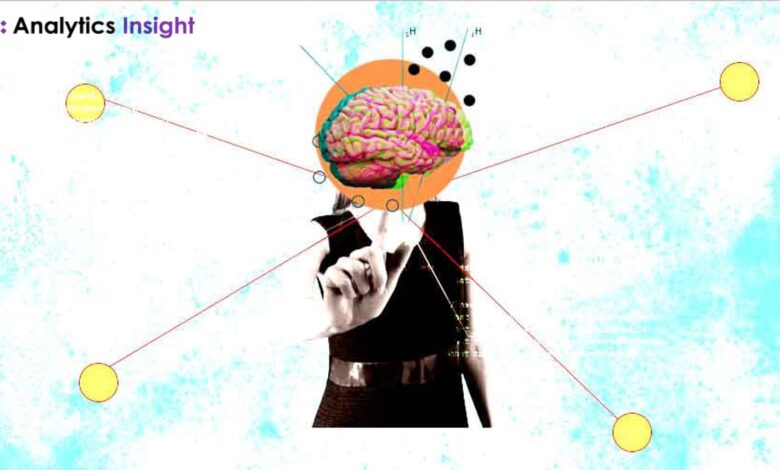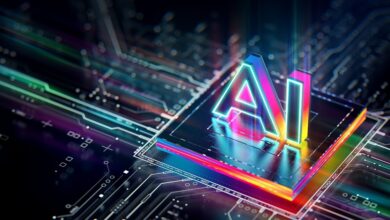Top 10 Generative AI Predictions, 2024

Generative AI, which generates content from data through machine learning techniques, has recently emerged as a game-changer in several fields. Looking ahead to 2024, the outlook for generative AI is guardedly optimistic, with further enhancements and developments anticipated. This article unleashes the top 10 Generative AI Predictions, 2024, that has the potential to transform the future of AI in various sectors.
1. Improving the Human Understandability of Natural Language and Other Elements
Natural Language Processing (NLP) has made cutting-edge progress because of generative AI models such as GPT-3 and GPT-4. By 2024, we anticipate that those models will be even more advanced, allowing users to produce human-like text input and output at a very high rate. Further advances in NLP will transform customer interaction and content creation, making language translation more contextual.
Customer Service: AI-based systems are expected to take on more responsibility for handling robust queries with little intervention from human agents.
Content Creation: AI will benefit writers by providing rapid first drafts, summaries, and translations, consequently optimizing individual efficiency and innovation.
Language Translation: Remarkably, increased speed and real-time accuracy in translations will overcome some of the barriers in language communication.
2. Transformative AI in Healthcare
Using generative AI solutions in healthcare will help develop new approaches to diagnostics and treatments, improve patient outcomes, and optimize the overall healthcare system. These are going to be empowered abilities to analyze medical data with Artificial Intelligence to devise ideal regimes, mimic how different medications react, and foresee the outbreak of diseases with much higher accuracy.
Personalized Medicine: AI will present patients with different treatment plans according to their genetic makeup, enhancing patient satisfaction.
Drug Discovery: The best artificial intelligence advancements for drug development include action-based simulations and molecular shape grammars.
Predictive Analytics: This involves diagnosing diseases in their initial stages or even estimating potential disease outbreaks within a society through models developed by AI from large datasets.
3. Revolutionizing Creative Industries
AI, in its generative form, is set to continue reshaping creative economies and domains like art, music, and entertainment. With such technologies, creators can start breaking boundaries and coming up with new ways of storytelling for artists, musicians, and filmmakers.
Art and Design: AI will help artists generate individual pieces, excite discordant themes and genres, and try new forms.
Music Production: Communicative AI is expected to write songs, offer harmonic ideas, and perfect students’ work.
Film and Animation: AI-created scripts, storyboards, and titles will increase production efficiency and turn production into an entirely new method of storytelling.
4. AI-Driven Scientific Research
By 2024, generative AI will be among the most critical tools for scientific work, which will aid in the formulation of hypotheses, the development of experiments, and pattern analysis. Underlying AI will contribute significant advances in several areas, including physics, chemistry, and biology, by allowing for the generation of new hypotheses and automating the process of testing them.
Hypothesis Generation: AI will search for the best hypotheses and experimental designs in line with existing findings.
Data Analysis: Computerized applications will analyze a vast amount of data, exposing relationships in datasets that may well escape human observation.
Simulation and Modeling: Several of these technologies include the following: Advanced simulation based on AI will simulate real-world systems such as climate change systems, molecular interconnection, and others to bring more and better understanding and predictions.
5. Revolutionizing Education and Learning
Generative AI applications in education include the creation of educational content, intelligent tutoring systems, and a fully customized educational setting. Technology will assist educators in creating flexible approaches that fit the students’ dynamics.
Personalized Learning: Students will also be evaluated to determine the method that they find more comfortable with in learning, and this will help the AI system to customize according to their needs, hence improving their attendance rates.
Intelligent Tutoring: AI-enabled avatars will offer on-demand information, facilitate discussions, and respond to questions.
Content Generation: Interactive content using AI will be introduced, including quizzes, simulations, and multimedia lessons, making the learning process enjoyable.
6. AI for generation across finance and Business
The societal benefit of generative AI will mainly be observed in the financial and their counterpart business segments. It will enhance the formulation of crucial decisions, control of risks, and communication with customers. The market trends will be forecasted using AI-generated models, and there will be accommodations for fraudulent activities and automated financial reporting.
Market Prediction: Machine learning will use current and historical data on the financial markets to help determine future trends and possible profits from a particular investment.
Fraud Detection: Superior AI, which may range from predictive pattern analysis to identifying fraud, will occur in real time, thus shielding both the businesspeople and consumers.
Automated Reporting: When adopted and implemented by finance experts, they will generate advanced financial statements and analyze those statements. Then, the workload will be relieved, and accuracy will be enhanced.
7. Advancements in Autonomous Systems
Self-driving cars, drones, and robots will also be areas where significant progress will be made as generative AI progresses. These will systematically become efficient, convenient, and increasingly capable of executing complex processes with minimal raw human input.
Self-Driving Cars: Machine learning will integrate AI into self-driving cars to provide a more reliable mode of transportation through increased route finding, obstacle detection, and clearer decision-making.
Drones: The applications of self-operating intelligent drones to deliver goods and services and monitor environmental factors are notable examples of the advanced use of AI in drone systems.
Robotics: Sophisticated generative AI systems will bring new functionalities, allowing robots to advance tasks, situations, and scenarios.
8. Climate change and the environment generative AI
The application of generative AI in climate change and other environmental concerns calls for significant research in understanding the elaborate ecosystems involved, evaluating the effects of policies with climate change goals, and developing novel solutions to combat climate change.
Climate Modeling: Computer programs developed explicitly by artificial intelligence to be created to mimic climate change events and enable policymakers to act reciprocally.
Environmental Monitoring: AI will assist in monitoring the environment using sensors and satellites to detect changes and assess the likelihood of natural calamities.
Sustainable Solutions: AI-based solutions will create new products and ways of working to minimize CO2 emissions and support the green agenda.
9. Enhancing Cybersecurity with AI
In the future, considering the rise of advanced cyber threats, the use of generative AI predictions will prove highly beneficial as it can foresee threats, generate protocols to overcome those threats, and detect the counter threats on its own.
Threat Prediction: Machine learning will be used to analyze and identify different types of threats. This way, companies will be able to accurately predict cyber threats, with AI always one step ahead and ready to fight cybercriminals.
Automated Response: Sophisticated generative AI will work towards the generation of real-time counteractions against detected threats, reduction of impact, and enhancement of protective measures.
Secure Protocols: Technological advancements in the generation of ciphers through AI and innovative security measures will improve the protection of data and privacy.
10. Ethical and Regulatory Changes in the Use of Artificial Intelligence
Due to the emergence of generative forms of AI in the future, ethical and regulatory aspects will come into play. By 2024, tremendous progress will be made in the rule-making process to make the use of AI responsible while dealing with problems like bias, openness, and regulation.
Bias Mitigation: Taken together, advances in reducing bias in AI models will contribute to a better distribution of results across different domains.
Transparency: AI developers will focus on interpretability, ensuring that society understands AI and the logic behind it more.
Regulation: Regulative structures will be established to govern how AI technologies are developed and used minimally in the future, meeting the ethical standards required by governments and organizations around the globe while safeguarding consumers’ rights.
Conclusion
Venturing into the future, Generative AI Predictions. From expanding the way we understand language and utilizing it in our daily lives and healthcare to reinventing art, entertainment, and science, generative AI will become the catalyst for progress in numerous spheres. However, progress has brought about these crucial ethical and legal questions that need to be solved so that AI technologies can be used for the good of everyone. It would also be helpful to receive regular updates on such trends and developments to understand better the future impact of generative AI in the coming years.



